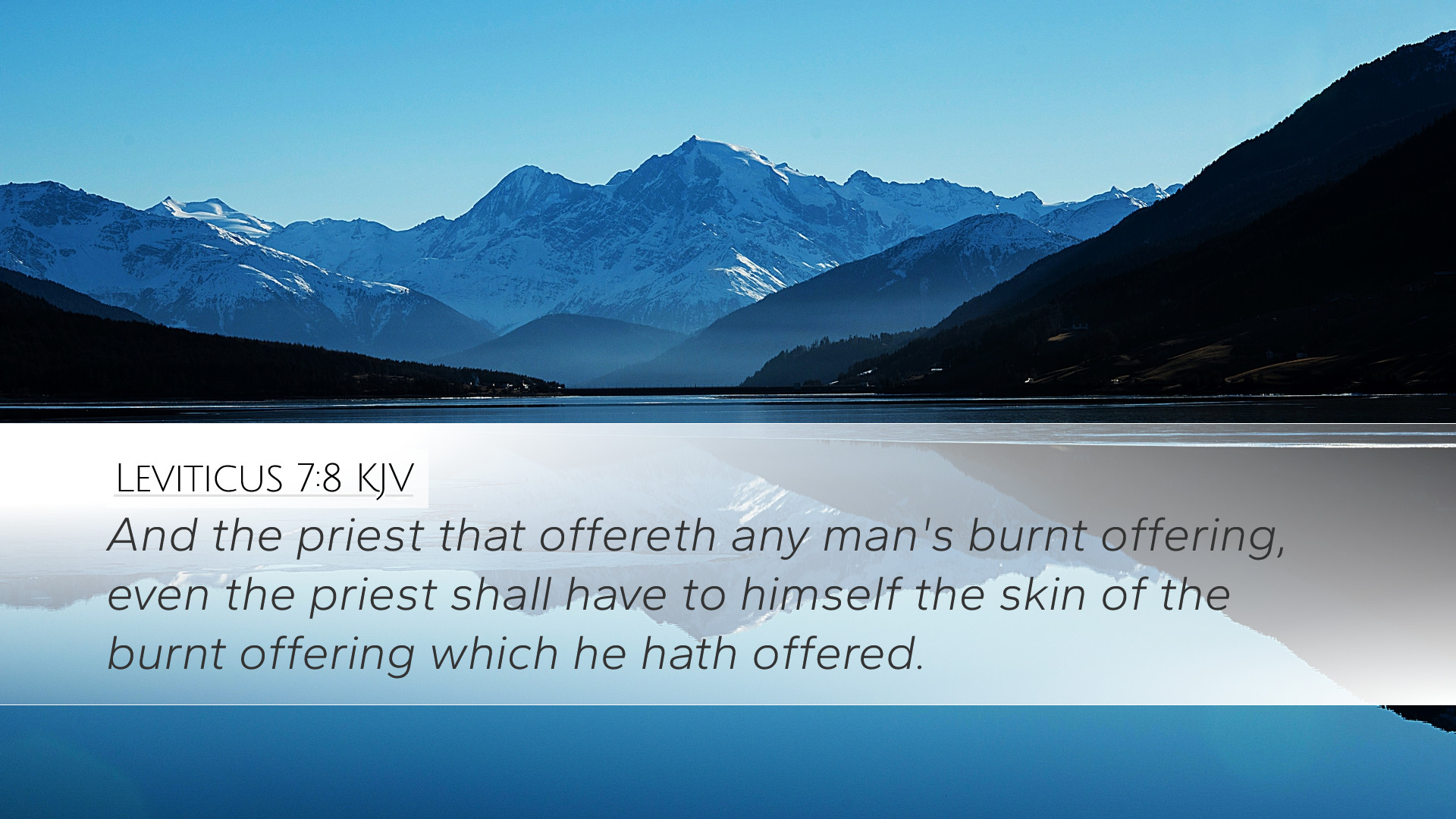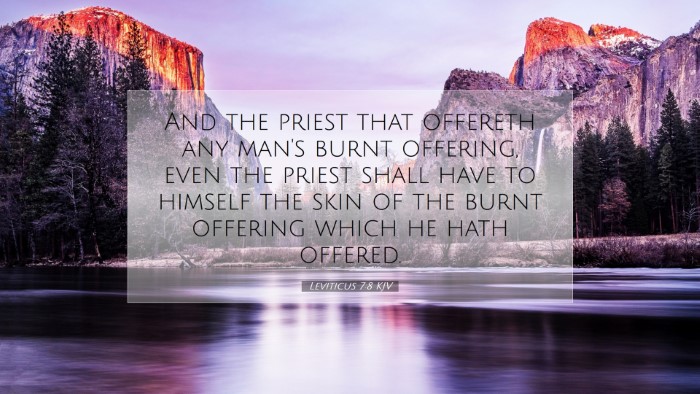Commentary on Leviticus 7:8
Verse: Leviticus 7:8 - "And the priest that offereth any man's burnt offering, even the priest shall have to himself the skin of the burnt offering which he hath offered."
Overview
This verse discusses the benefits assigned to the priest who offers a burnt offering on behalf of another. The allocation of the skin signifies both the priest's role and his reward for performing religious duties, emphasizing his dependence on the offerings for sustenance.
The Priestly Role
The priest's function in the sacrificial system is multifaceted, and this verse highlights one particular aspect: the priest's right to the skins of the burnt offerings.
- Matthew Henry: Henry emphasizes that the priest acts as a mediator between God and the people. His acceptance of the skin is not merely a material benefit but symbolizes his invested relationship with the offerings made by the people.
- Albert Barnes: Barnes points out that this allocation shows the provision made by God for the priests' livelihoods. This indicates that God cares for those who serve Him, and this should encourage faithfulness in ministry.
- Adam Clarke: Clarke notes that the burnt offering is wholly consumed on the altar, yet the skin remains a right of the priest, illustrating God's way of providing for the priests while also demonstrating the significance of the offering itself.
The Significance of the Burnt Offering
The burnt offering is one of the central elements of the sacrificial system. It is characterized by its complete consumption, thus reflecting total dedication to God.
- Matthew Henry: He articulates that the burnt offering is a symbol of complete submission and surrender to God, highlighting the totality of the offering as an essential aspect of worship.
- Albert Barnes: Barnes explains that the burnt offering signifies atonement and dedication, portraying it as a means of seeking favor from God. The remaining skin serves as a reminder that God accepts the sacrifice and rewards obedience.
- Adam Clarke: Clarke adds that despite the offering being consumed, the priest’s rights represent God's faithfulness in providing for those who devote themselves to His service.
Theological Implications
This verse presents various theological implications related to the nature of sacrifice, the role of the priesthood, and God’s provision.
- Priesthood: The verse affirms the importance of the priest as a mediator. As seen across various commentaries, there is a deep sense of dignity in the priestly office that should be honored.
- Divine Provision: The allocation of the skin explicitly reinforces the theme of God providing for those who serve Him. This highlights the principle that those engaged in ministry should be cared for by the community of believers.
- Christological Foreshadowing: Some theologians see this verse as a precursor to the ultimate sacrifice of Jesus Christ, where the high priest (Christ) provides for His own through His sacrificial death.
Practical Applications
Reflecting on Leviticus 7:8 provides several practical applications for today's pastors, students, and theologians:
- Service and Reward: Those who serve in ministry should recognize that their work is vital and that God will supply their needs, reinforcing the importance of their roles in church life.
- Generosity in Ministry: The acknowledgement of priests’ rights serves as a reminder for congregations to support their ministers and leaders adequately, echoing the biblical principle of providing for their needs.
- Commitment to God: The nature of the burnt offering calls for a deeper understanding of what it means to fully offer oneself to God, challenging believers to rethink their commitments and sacrifices in their relationships with God.
Concluding Thoughts
The commentary on Leviticus 7:8 invites deeper reflection on the reciprocal relationship between God, the priesthood, and the congregation. It challenges modern readers to see the sacrificial system not as obsolete but as a rich source of theological insight into God’s character, provision, and the call to total dedication.


